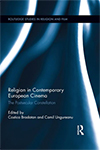- Author(s): Aviva Atlani
- When: 2014-11
- Where: The University of Western Ontario
Jewish humour sheds a crude light on the social, political, and historical realities of the Holocaust. Paradoxically, contentiously, doses of levity during this period were very much a reality, and even a psychological necessity. The purpose of my thesis is to explore the historical, social, and political ramifications of such laughter provoking manifestations. In doing so, the nuances are highlighted which are found within the laughter of the ghettos, the transit camps, and the concentration camps. Furthermore, some of these jokes, and their subsequent variations, reappear within the discourse of children of survivors. The dissertation explores how some of these children use humour to navigate the horrors that their parents experienced. By doing so, parent-child divisions are both highlighted and bridged. Moreover, while classic characters of Yiddish folklore disappeared during the Holocaust, their resurgence within a fictional, quasi-comical Holocaust and post-Holocaust settings, bridges a cultural schism. The reappearance of the dybbuk, of the schlemiel, and of the Chelmites becomes as damning as it is healing. Finally, even the notion of memory is called into question, particularly within popular culture. Humour highlights both the absurdity and the reality, which permeates such a dialogue. While there is little room for political correctness, issues of memory must be addressed and veiling them within a comedic context heightens the relevance while diminishing the threat of repeating or forgetting the Holocaust. In the end, extensive research suggests that the types of levity found within testimonies, (auto)biographies, documentaries, films, graphic novels, fictional prose, television shows and specials act as a psychological and historical portal into the past and the present.









